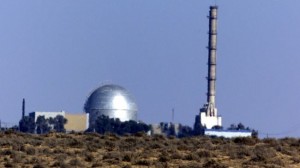 A rare opportunity for a diplomatic resolution to the dispute over Iran�s nuclear program is at risk because many lawmakers, urged on by Prime Minister Benjamin Netanyahu of Israel, are insisting that Congress impose tougher economic sanctions, perhaps next week as an amendment to the defense bill.
A rare opportunity for a diplomatic resolution to the dispute over Iran�s nuclear program is at risk because many lawmakers, urged on by Prime Minister Benjamin Netanyahu of Israel, are insisting that Congress impose tougher economic sanctions, perhaps next week as an amendment to the defense bill.Sanctions have been crucial in keeping the pressure on Iran. But doubling down on them at this delicate moment, when Iran and six major powers, including the United States, have made progress toward an interim agreement, could cause negotiations between the two sides to collapse and, worse, become a pathway to war.
Layers of sanctions, imposed separately since 2006 by the United Nations Security Council, the United States and Europe, have been largely responsible for moving Iran to the point of serious negotiations. Constrained from selling oil, its main moneymaker, and boxed out of the international financial system, Iran is reeling economically. Oil export earnings have fallen from a range between $110 billion and $120 billion annually to a range of $40 billion to $50 billion, of which about half is available to the government. Hassan Rouhani, elected president earlier this year, believes he has a popular mandate � as well as support from Ayatollah Ali Khamenei, the supreme leader � to seek an easing of these sanctions through negotiations.
Even so, Israel, groups like the Washington, D.C.-based Foundation for Defense of Democracies and lawmakers like Senator Mark Kirk, Republican of Illinois, want to ratchet up the pressure. Their stated aim is to force Iran to completely dismantle its nuclear program.
From a Western perspective, that would be an ideal outcome. But new sanctions are unlikely to force Iran to abandon an enterprise in which it has invested billions of dollars and a great deal of national pride. Fresh sanctions would also shred whatever little good will the United States and Iran have begun to rekindle. If Tehran walks away from the talks, Washington will be blamed, the international unity supporting the network of sanctions already in place will unravel, and countries that have reduced imports of oil from Iran will find fewer reasons to continue doing so.
The Iranians could conclude that America is determined to overthrow their entire system, and, as a result, accelerate efforts to build a nuclear bomb. This, in turn, could end up leading to American military action (Mr. Obama has said Iran will not be allowed to acquire a weapon), engaging a war-weary America in yet another costly conflict and further destabilizing the region, while setting Iran�s nuclear program back by only a few years.
Iran has a deeply troubling record of hiding its nuclear program and displaying overt hostility to Israel. America and its allies are right to be skeptical of its promises. But the only rational course is to test Iran�s intentions through negotiations. Further, from what is known so far, the proposal on offer seems reasonable for each side. It would freeze major parts of Iran�s program for six months and allow some relief on sanctions, including access to about $10 billion in Iran�s frozen assets, while a more permanent deal is discussed.
Iran has already taken steps in that direction. On Thursday, the International Atomic Energy Agency reported that since Mr. Rouhani took office in June, the country had virtually halted its previously rapid expansion of its uranium enrichment capacity.
President Obama deserves more time to work out a negotiated settlement with Iran and the other major powers. If the deals falls through, or if inspections by the United Nations unearth cheating, Congress can always impose more sanctions then. But if talks fail now, Mr. Netanyahu and the hard-line interest groups will own the failure, and the rest of us will pay the price.
By The New York Times�
The Iran Project is not responsible for the content of quoted articles.










